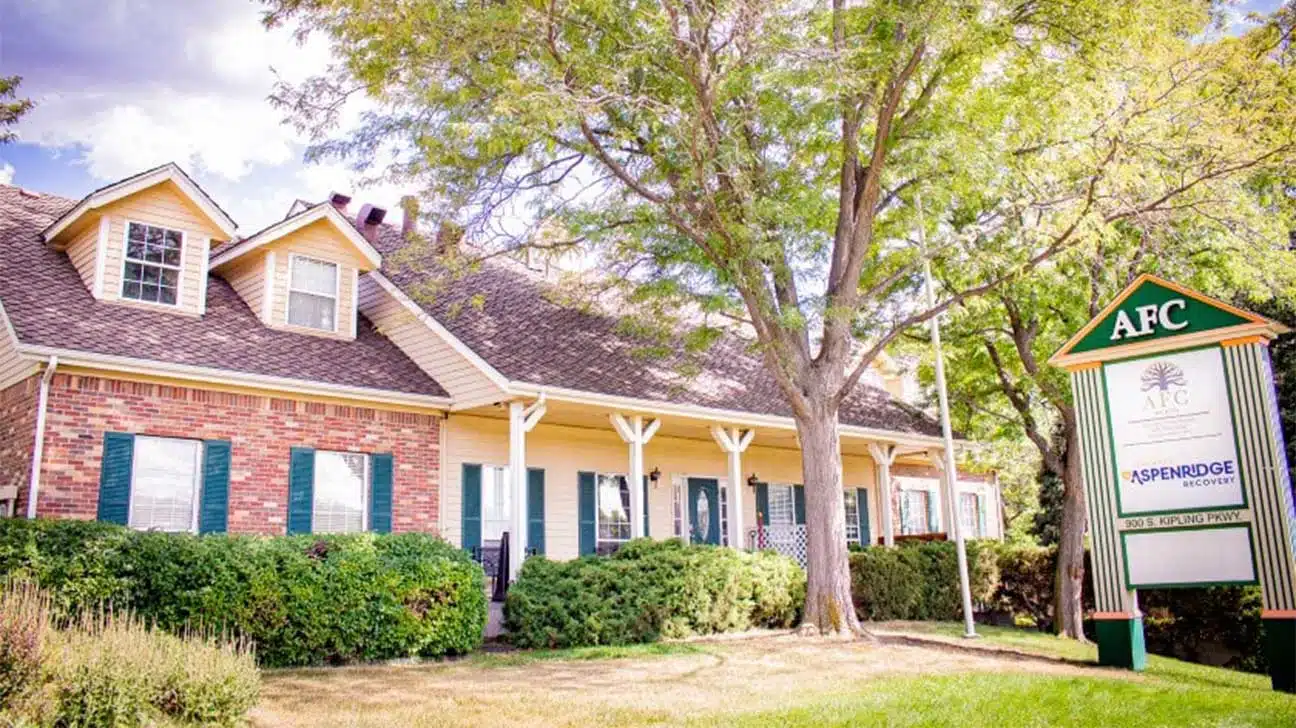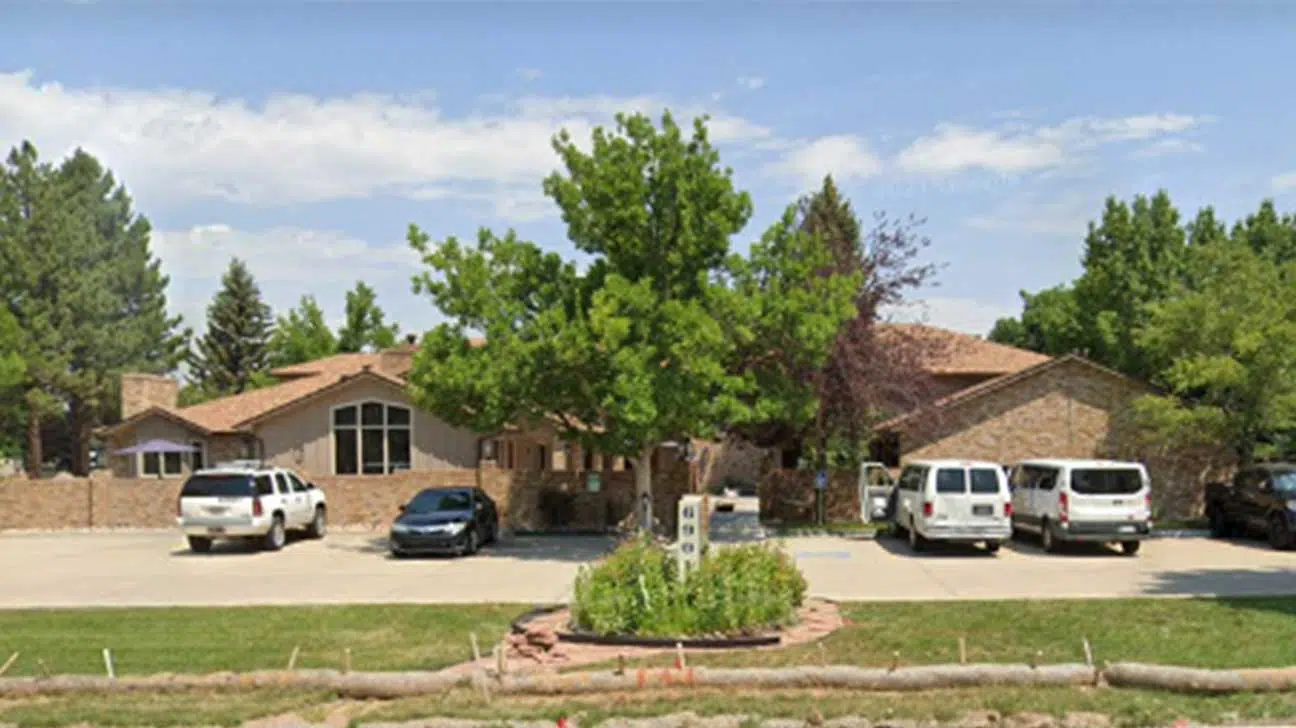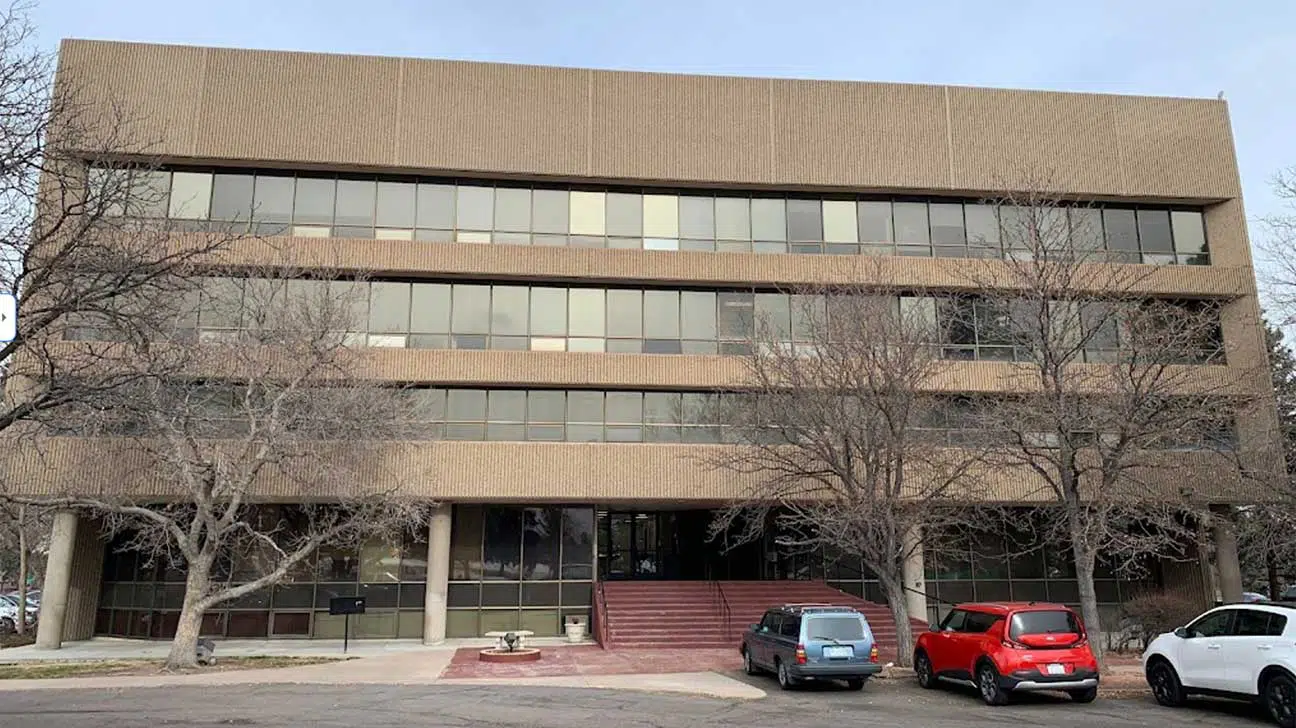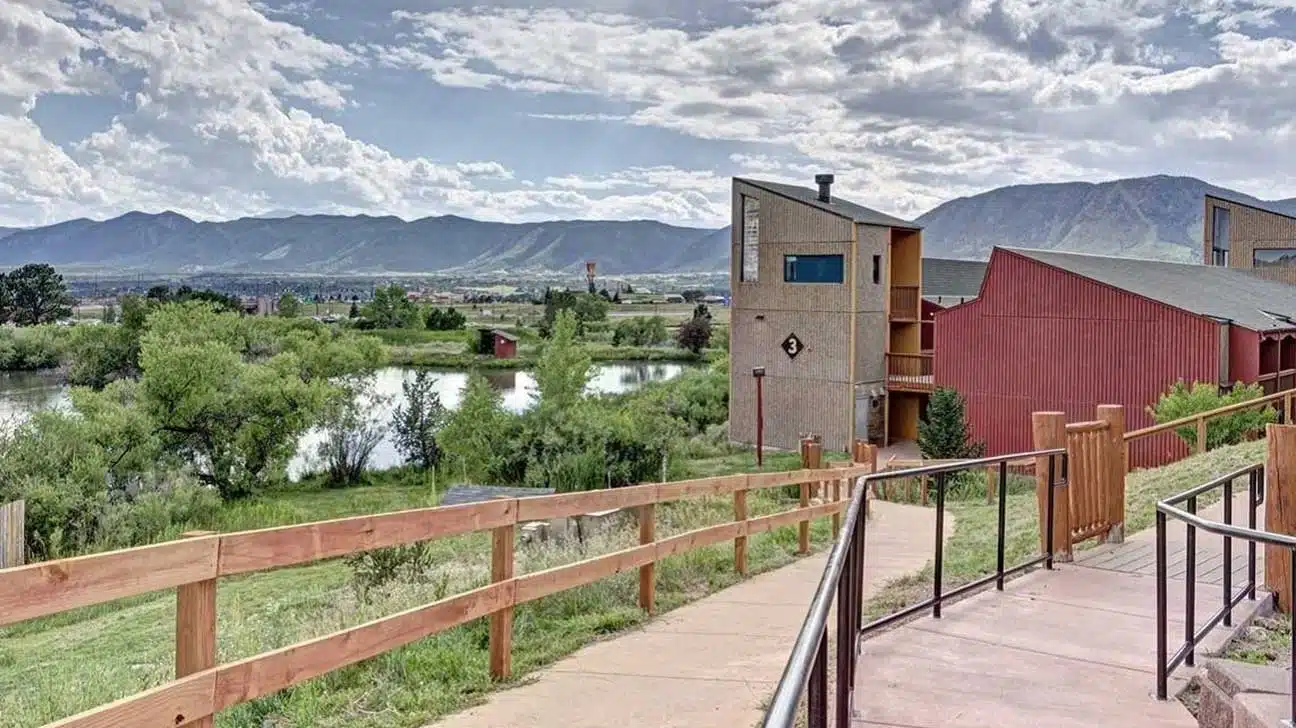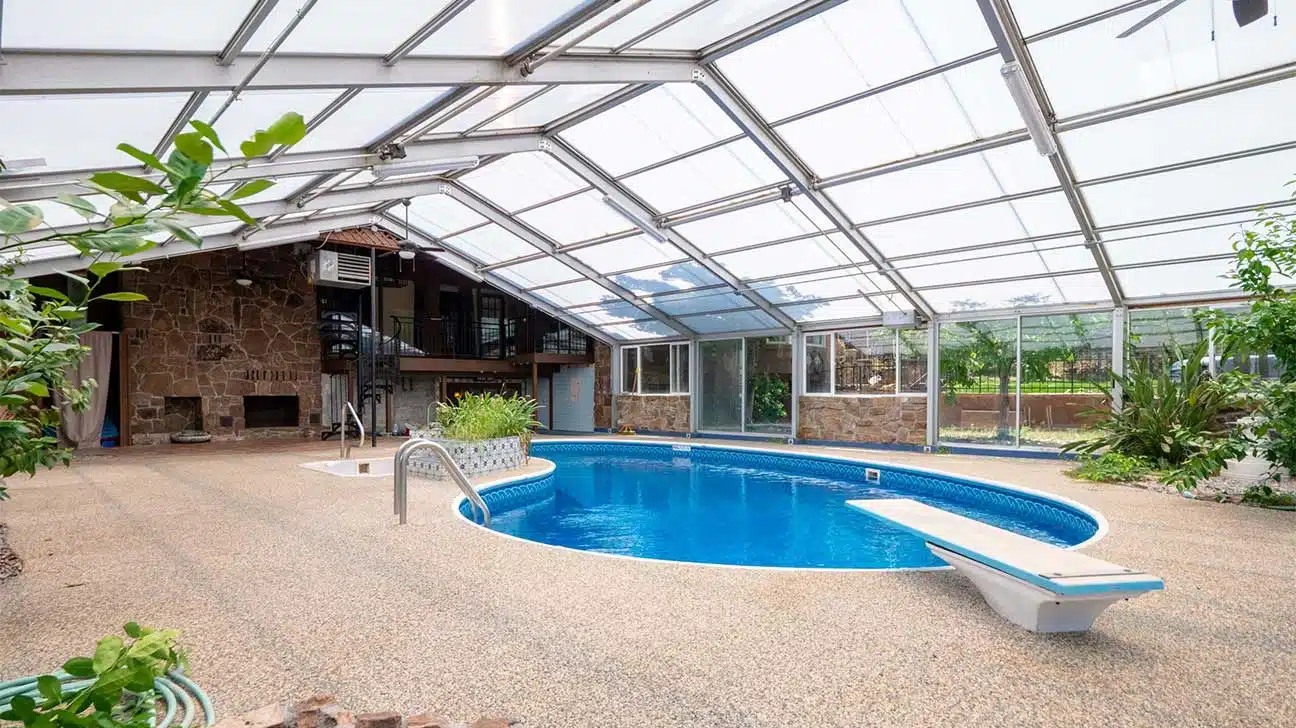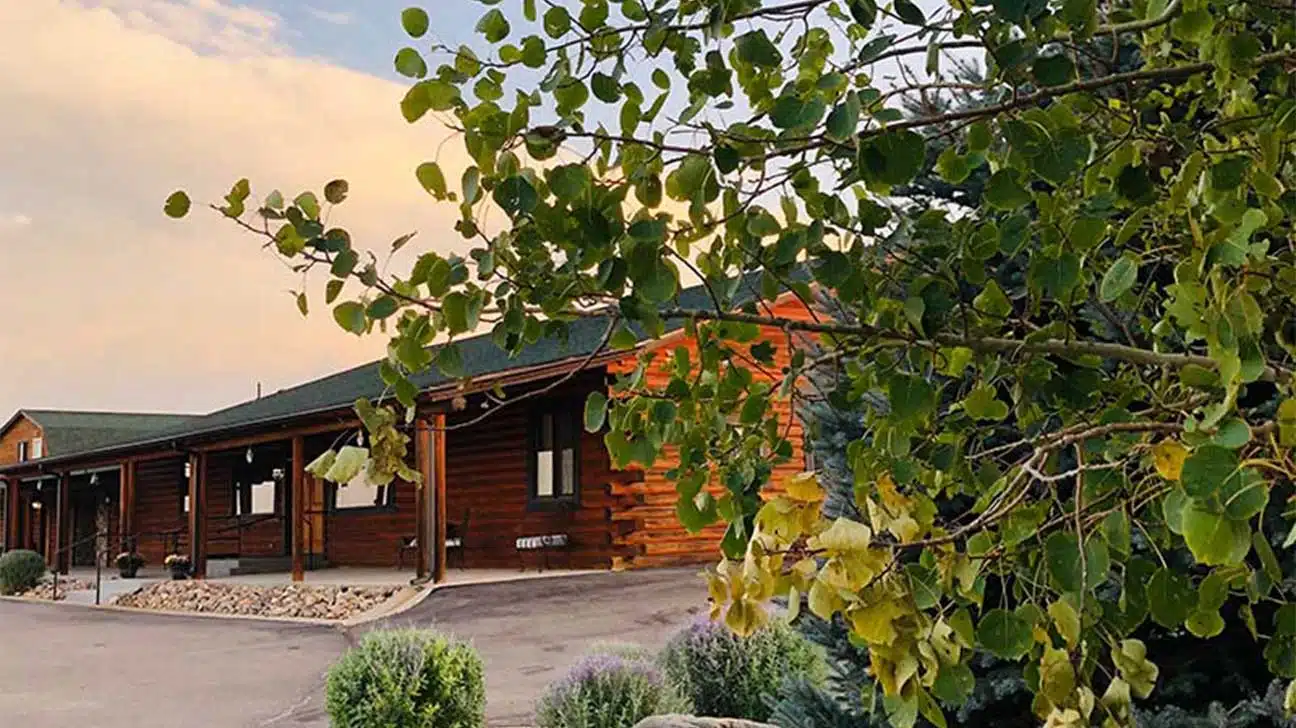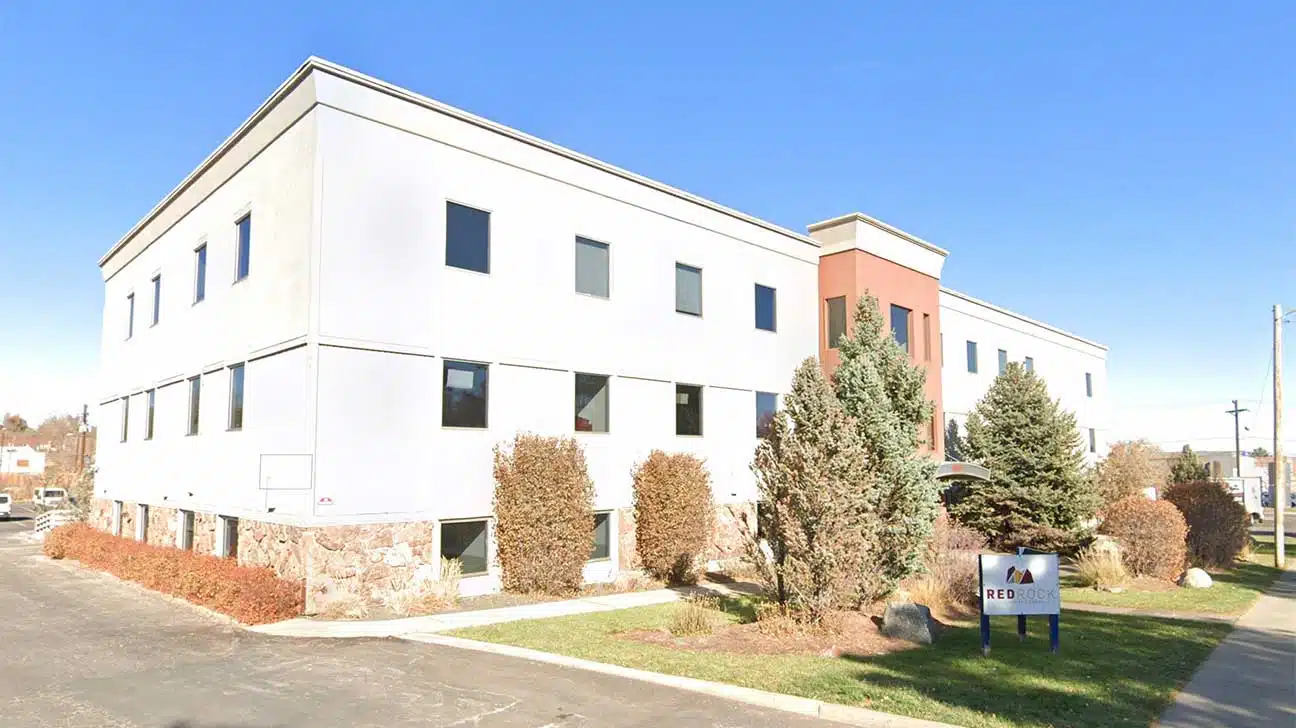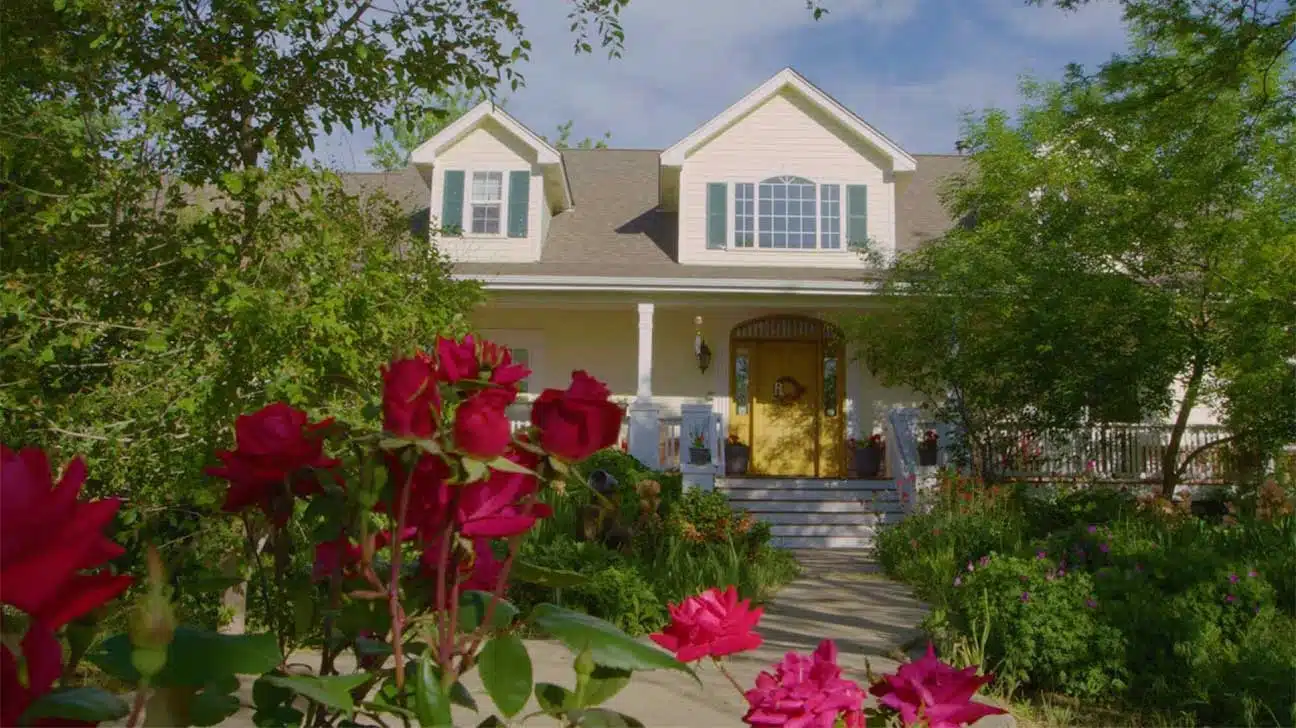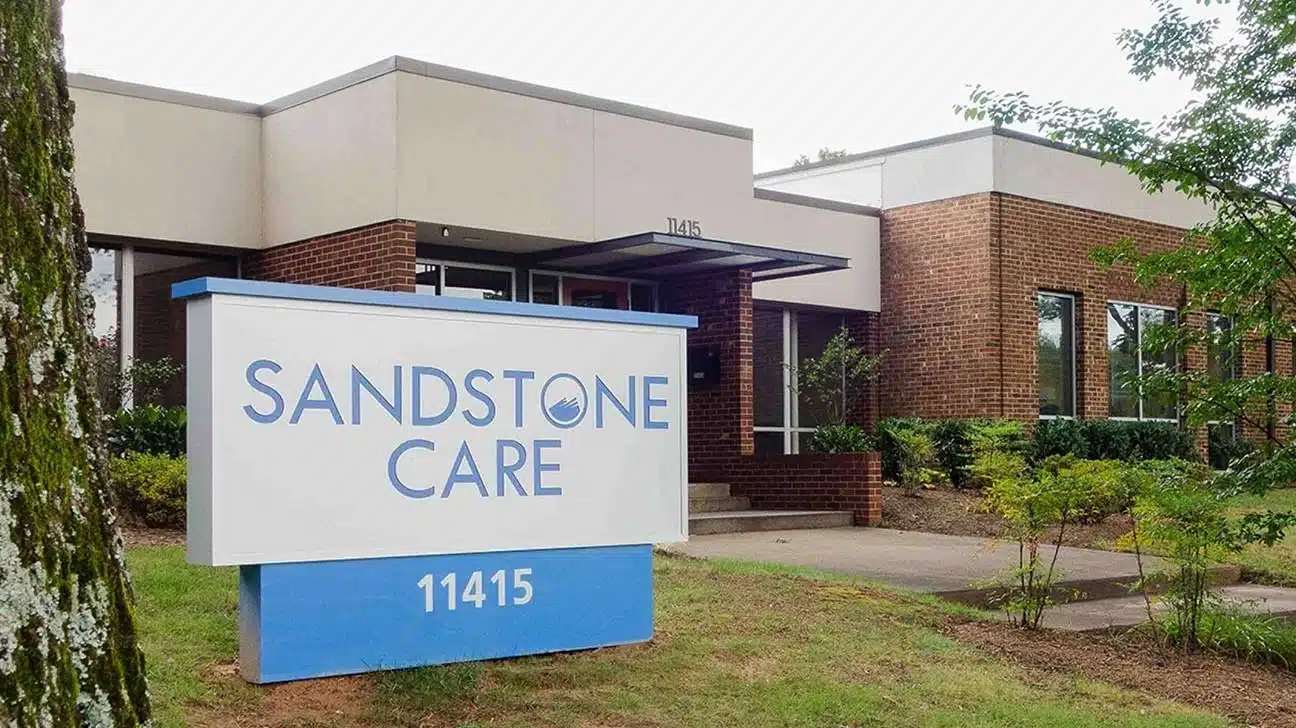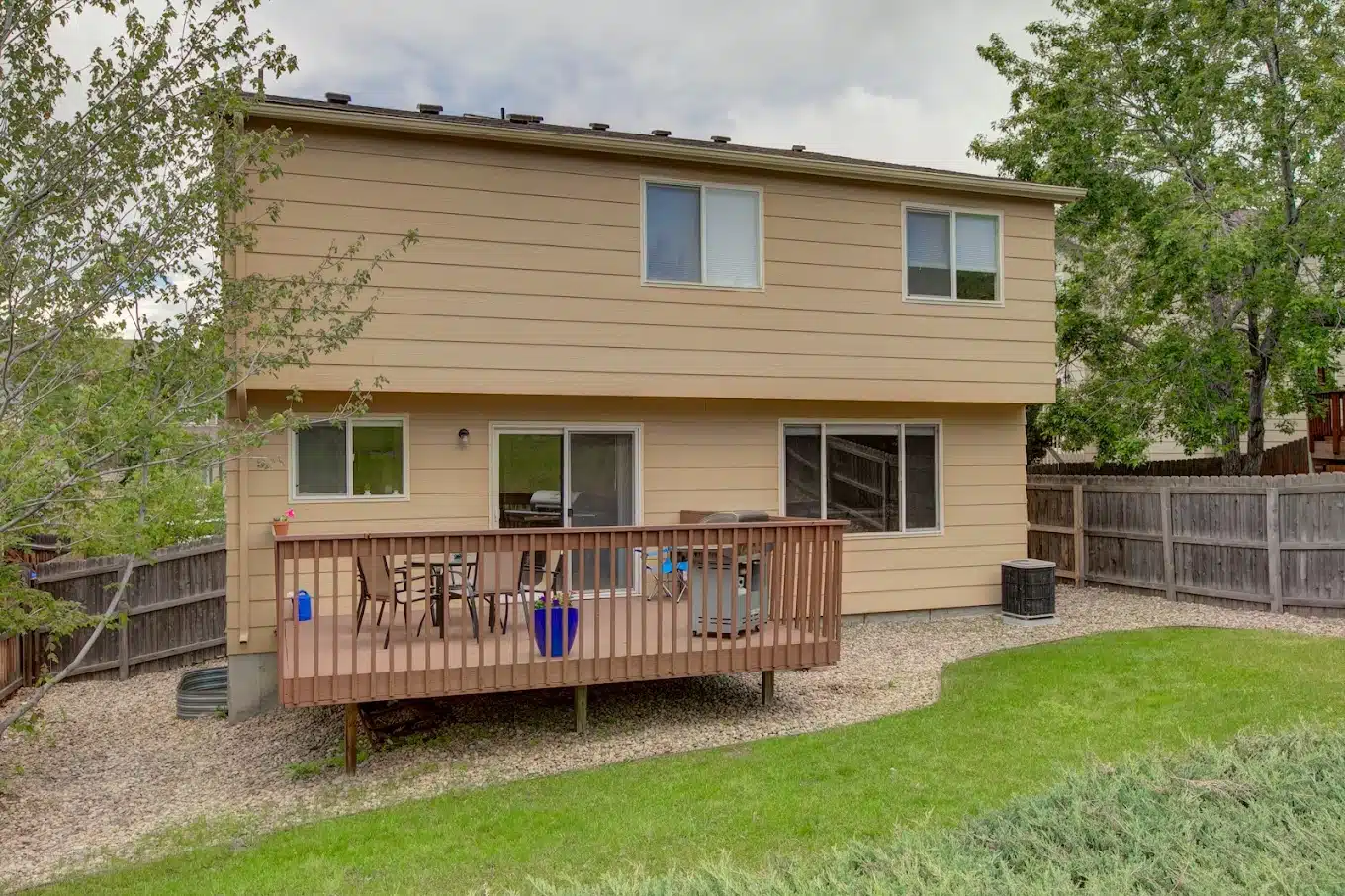
Several rehab facilities offer dual diagnosis treatment in the state of Colorado, so you can get treatment for both addiction and mental illness simultaneously.
These programs are equipped with evidence-based behavioral therapies, medications for those that need them, and a staff of professional mental health treatment providers.
List Of Colorado Dual Diagnosis Treatment Centers
The Colorado dual diagnosis rehab programs in this list feature trusted qualities such as accreditation, licensure, high Google ratings, or other quality marks.
1. AspenRidge Recovery Lakewood, Lakewood, Colorado
This is an outpatient drug and alcohol rehab center that offers intensive outpatient programs (IOP) and a partial hospitalization program (PHP) for substance abuse in Lakewood, CO.
Clients can get dual diagnosis treatment here for substance abuse and the following:
- depression
- anxiety disorders
- schizophrenia
- personality disorders
Treatment for addiction and mental health disorders here is supported by:
- accreditation from the Joint Commission
- membership in the National Association of Addiction Treatment Providers (NAATP)
- a 4.5-star Google rating
Location and contact information:
900 S. Kipling Pkwy.
Lakewood, CO 80226
(855) 233-8494
2. Choice House, Boulder, Colorado
Choice House offers a dual-diagnosis treatment program involving group therapy, one-on-one therapy sessions, art therapy, outdoor adventure therapy, a family program, and more.
Disorders co-occurring with substance use disorder that can be treated here include:
- depression
- anxiety
- obsessive-compulsive disorder (OCD)
- attention-deficit/hyperactivity disorder (ADHD)
- schizophrenia
- personality disorders
- bipolar disorder
- post-traumatic stress disorder (PTSD)
- eating disorders
This addiction recovery center in Boulder, CO, is supported by:
- Joint Commission accreditation
- NAATP membership
- a 4.9-star rating on Google from 59 reviewers
Location and contact information:
6901 Lookout Rd.
Boulder, CO 80301
(303) 578-4765
3. Continuum Recovery Center Of Colorado, Denver, Colorado
This drug and alcohol addiction rehab program in Denver, CO, offers an outpatient program for people with co-occurring mental health conditions such as depression and anxiety.
The program features techniques such as:
- assessments for mental health and behavioral disorders, including addiction
- group therapy
- individual therapy
- family therapy
- medication-assisted treatment (MAT)
- continuing care
- meditation
- yoga
- nutrition
Continuum Recovery Center of Colorado is:
- LegitScript-certified
- Joint Commission-accredited
- Better Business Bureau (BBB)-accredited
- a member of the NAATP
Location and contact information:
9725 E. Hampden Ave.
Ste. #308
Denver, CO 80231
(303) 586-6069
4. Footprints To Recovery, Centennial, Colorado
This addiction rehab facility in Centennial, CO, offers treatment for co-occurring disorders in all the levels of care that they provide.
Footprints to Recovery facilitates:
- outpatient treatment
- IOP
- PHP
- detoxification
- MAT
A few of the notable features of this rehab program are:
- LegitScript certification
- Joint Commission accreditation
- membership in the NAATP
- 4.3-star rating on Google
- membership in the National Association for Alcoholism and Drug Abuse Counselors (NAADAC)
Location and contact information:
6505 S. Paris St.
Centennial, CO 80111
(855) 628-2899
5. Mountain Springs Recovery, Monument, Colorado
Detox, MAT, dual diagnosis treatment programs, and 30-to-90-day rehab programs are offered at Mountain Springs Recovery.
This addiction treatment program near Black Forest, CO, can treat a range of mental health issues, such as depression and anxiety disorders.
Mountain Springs Recovery features:
- Joint Commission accreditation
- LegitScript certification
- a 4.2-star Google rating
Location and contact information:
1865 Woodmoor
Monument, CO 80132
(855) 760-0612
6. Peaks Recovery Centers, Colorado Springs, Colorado
Peaks Recovery Centers is a substance abuse recovery center in Colorado Springs, CO, with additional locations in Denver.
They offer gender-specific residential and inpatient treatment as well as an IOP, all of which provide a dual diagnosis approach to recovery.
Trusted qualities of this mental health and substance abuse treatment center include:
- a 4.7-star Google rating
- LegitScript certification
- Joint Commission accreditation
Location and contact information:
2270 La Montana Way
Colorado Springs, CO 80918
(855) 222-1610
7. The Raleigh House, Denver, Colorado
This is an addiction and mental health treatment center that offers co-occurring disorder treatment with addiction treatment near Arvada, CO.
Clients can choose between programs such as 30-to-90-day inpatient rehab programs, IOP, and detox.
The Raleigh House is accredited by the Joint Commission, certified by LegitScript, and backed by a 4.1-star rating on Google.
Location and contact information:
6870 W. 52nd Ave.
Ste. #103
Arvada, CO 80002
(720) 891-4657
8. Red Rock Recovery Center, Lakewood, Colorado
Red Rock Recovery has an outpatient dual diagnosis treatment center near Englewood, CO. Inpatient treatment is available at this rehab facility but it does not include dual diagnosis care.
IOP here involves:
- co-occurring disorder treatment
- psychiatric assessment
- trauma-informed care
- eye movement desensitization and reprocessing (EMDR) therapy
- structured living
- individual counseling and group therapy
- family program
This drug and alcohol addiction treatment program is backed by Joint Commission accreditation and LegitScript certification.
Location and contact information:
8805 W. 14th Ave.
Ste. #200
Lakewood, CO 80215
(855) 218-7588
9. The Rose House, Louisville, Colorado
This is a gender-specific drug abuse treatment center in Louisville, CO, that offers residential treatment as well as outpatient treatment with an IOP and a PHP.
The Rose House offers evidence-based dual diagnosis treatment that includes:
- 30 hours of individual and group treatment
- relapse prevention skills
- trauma and mental health symptom management
- a focus on mind, body, and spirit
Treatment for dual diagnosis disorders here is backed by a 4.3-star rating on Google, accreditation through the Joint Commission, and membership with NAATP.
Location and contact information:
P.O. Box 270416
Louisville, CO 80027
(888) 398-4111
10. Sandstone Care, Colorado Springs, Colorado
Clients can get treatment for substance abuse and co-occurring mental health disorders through an IOP offered by this addiction treatment center near Security-Widefield, CO.
Locations are also available in Denver and Boulder.
The top qualities of addiction and mental health treatment here include:
- LegitScript certification
- a 4.7-star Google rating
- Joint Commission accreditation
Location and contact information:
7555 E. Hampden Ave.
Ste. #103
Denver, CO 80231
(720) 420-7444
11. Women’s Recovery, Denver, Colorado
Women’s Recovery is a gender-specific addiction recovery center near Aurora, CO, that also offers mental health services.
They offer a dual-diagnosis treatment program that offers assistance to women overcoming addiction and eating disorders, depression, anxiety, ADHD, bipolar disorder, and more.
Features of this drug addiction and mental health treatment center include:
- Commission on Accreditation of Rehabilitation Facilities (CARF) accreditation
- NAATP membership
- a 4.8-star Google rating
Treatment plans here may involve the following therapies:
- cognitive behavioral therapy (CBT)
- dialectical behavior therapy (DBT)
- EMDR
- mindfulness practices
Location and contact information:
3801 E. Florida Ave.
Ste. #650
Denver, CO 80210
(833) 754-0542
12. Zinnia Healing Denver, Broomfield, Colorado
Formerly the Denver Recovery Center, Zinnia Healing Denver has four locations in the Denver metro area, including an addiction treatment center in Broomfield, CO.
Zinnia offers dual diagnosis treatment at all locations and levels of care including:
- medical detox
- inpatient treatment
- residential treatment
- outpatient treatment
- sober living options
- aftercare
This drug rehab center features LegitScript certification and the Broomfield location is backed by a 4.9-star Google rating.
Location and contact information:
295 Interlocken Blvd.
Ste. #400
Broomfield, CO 80021
(855) 968-4361
Treatment Options For Co-Occurring Disorders At Colorado Recovery Centers
Treatment options for co-occurring disorders usually revolve around therapeutic modalities that can address mental health issues as well as addiction concerns.
Therapies for dual diagnosis treatment can include:
- CBT
- DBT
- contingency management
- therapeutic communities
- assertive community treatment
A dual-diagnosis treatment center may also rely on psychotropic medication to control the symptoms of a mental health disorder if it is warranted.
How Common Is Dual Diagnosis In Colorado?
According to the National Institute on Drug Abuse (NIDA), about 42 million Americans have a mental health illness. Among those, about 18% also have a substance use disorder.
Trailing slightly behind national rates, about 30% of adults in Colorado report symptoms of anxiety or depression. Unfortunately, almost 12% of adults with mental health issues don’t receive care.
There aren’t exact numbers on dual diagnosis or co-occurring disorders, but NIDA reports that, nationally, about 38% of people with a substance use disorder also have a mental health disorder.
Choosing A Dual Diagnosis Program In Colorado
If you are researching a dual diagnosis treatment center, here are several criteria to help you choose a program that’s best suited for you or your loved one.
Ask yourself the following questions when choosing a dual diagnosis program:
- Does this treatment center work with my insurance plan?
- Does this rehab center offer specialized dual diagnosis treatment?
- Does the facility address the specific disorders I need treatment for?
- Does this rehab program occur at the level of care (i.e. inpatient, outpatient, telehealth) that works best for me?
- What types of therapy does this rehab center use?
- Can I get peer support, holistic treatment, experiential therapy, or other services I require?
- Is medication management available here?
Colorado Dual Diagnosis Treatment FAQs
Below are some frequently asked questions about dual-diagnosis drug and alcohol treatment facilities in Colorado.
Are There Dual Diagnosis Addiction Programs For Teens In Colorado?
There are teen-only rehab centers that provide dual diagnosis treatment by addressing mental health and addiction concerns in group and individual sessions.
Some substance abuse disorder treatment programs combine teens and young adults under the age of 25. You can contact the facility to ask for details.
What Are The Most Common Mental Health Disorders At Colorado Dual Diagnosis Rehab Centers?
Addiction can co-occur with any mental health disorder, but some are more common than others. People who are chemically dependent may develop depression or anxiety alongside addiction.
Others may use drugs and alcohol to self-medicate, which is often the root cause for the connection between schizophrenia and addiction as well as the connections observed with personality disorders.
What Is The Difference Between Inpatient Treatment And Outpatient Treatment For Dual Diagnosis In Colorado?
Inpatient addiction treatment for dual diagnosis involves 24-hour care and a higher level of individual and group therapy, with daily activities and treatment sessions.
Outpatient substance abuse treatment for dual diagnosis is part-time and involves weekly sessions at varying levels of care.
Rehab centers that provide a full continuum of care for substance abuse problems often offer both options in various levels of outpatient care to guide participants through their long-term recovery.
Find Dual Diagnosis Treatment Today
If you are facing a substance use disorder and possibly an undiagnosed mental health disorder, you can get treatment. Call AddictionResource.net to learn about available treatment services.
Updated on April 3, 2023
Addiction Resource aims to provide only the most current, accurate information in regards to addiction and addiction treatment, which means we only reference the most credible sources available.
These include peer-reviewed journals, government entities and academic institutions, and leaders in addiction healthcare and advocacy. Learn more about how we safeguard our content by viewing our editorial policy.
- National Institute of Mental Health
https://www.nimh.nih.gov/health/topics/substance-use-and-mental-health - National Library of Medicine: MedlinePlus
https://medlineplus.gov/dualdiagnosis.html#:~:text=Someone%20with%20a%20dual%20diagnosis,you%20emotional%20and%20social%20support. - Substance Abuse and Mental Health Services Administration (SAMHSA)
https://www.samhsa.gov/medication-assisted-treatment/medications-counseling-related-conditions/co-occurring-disorders

